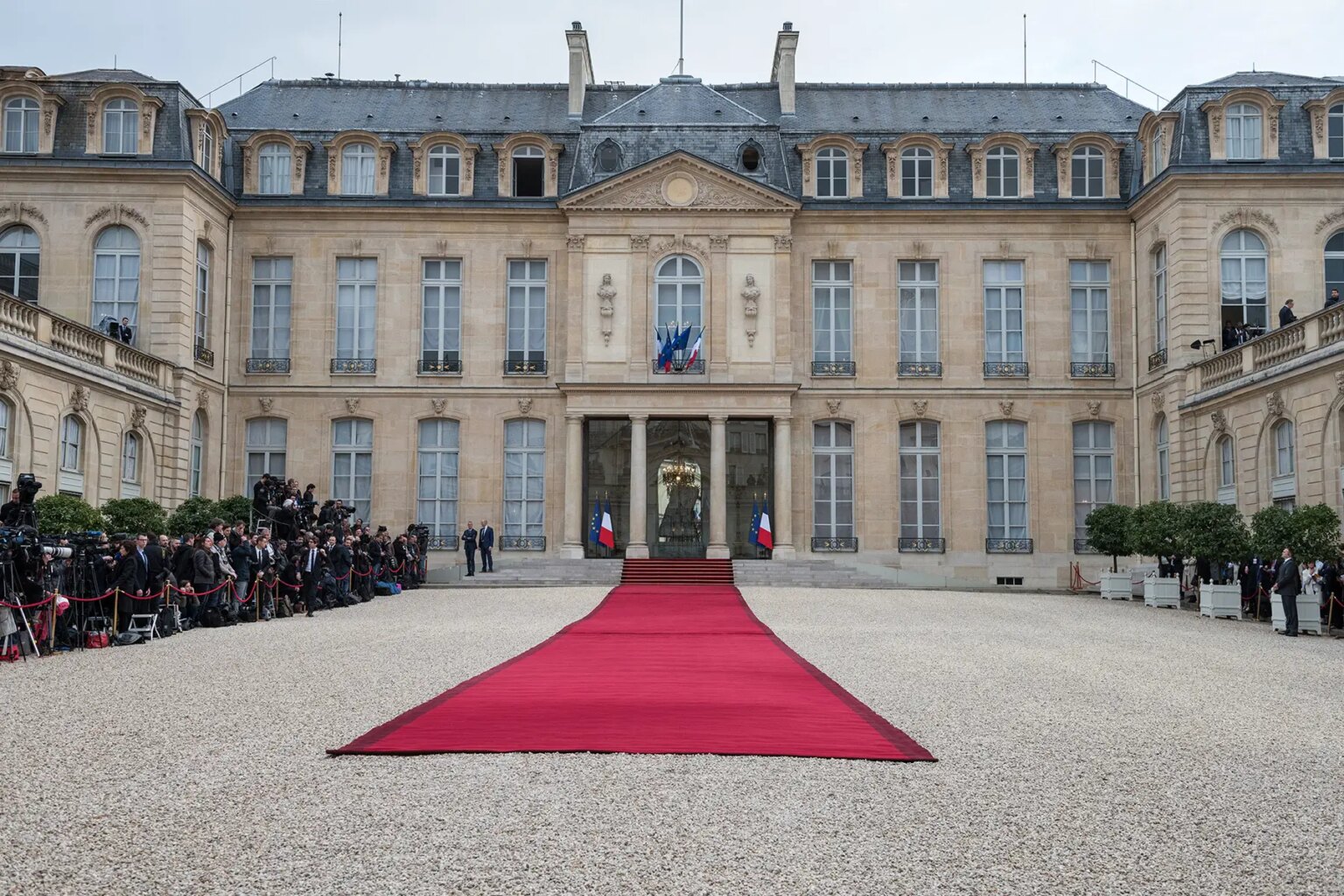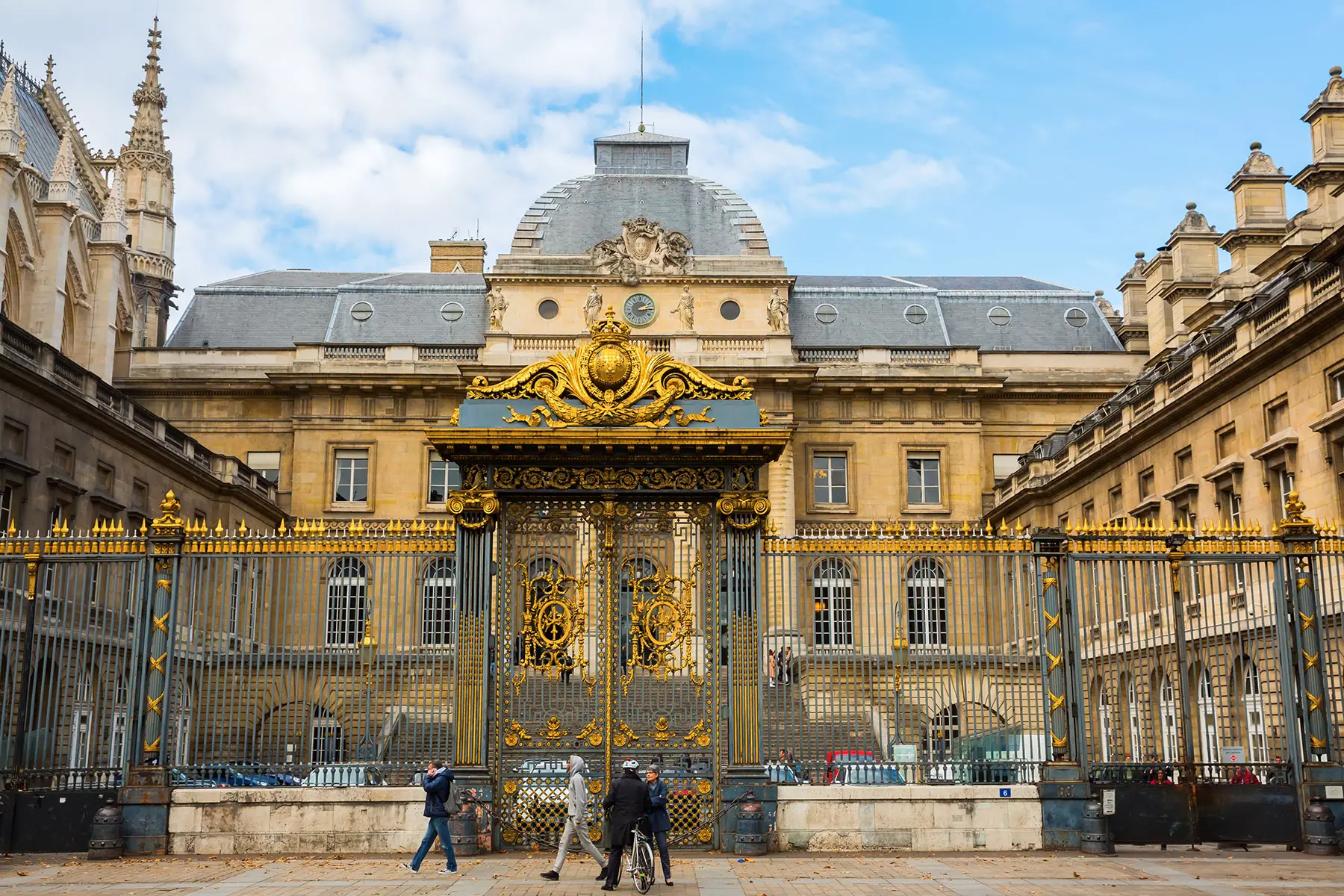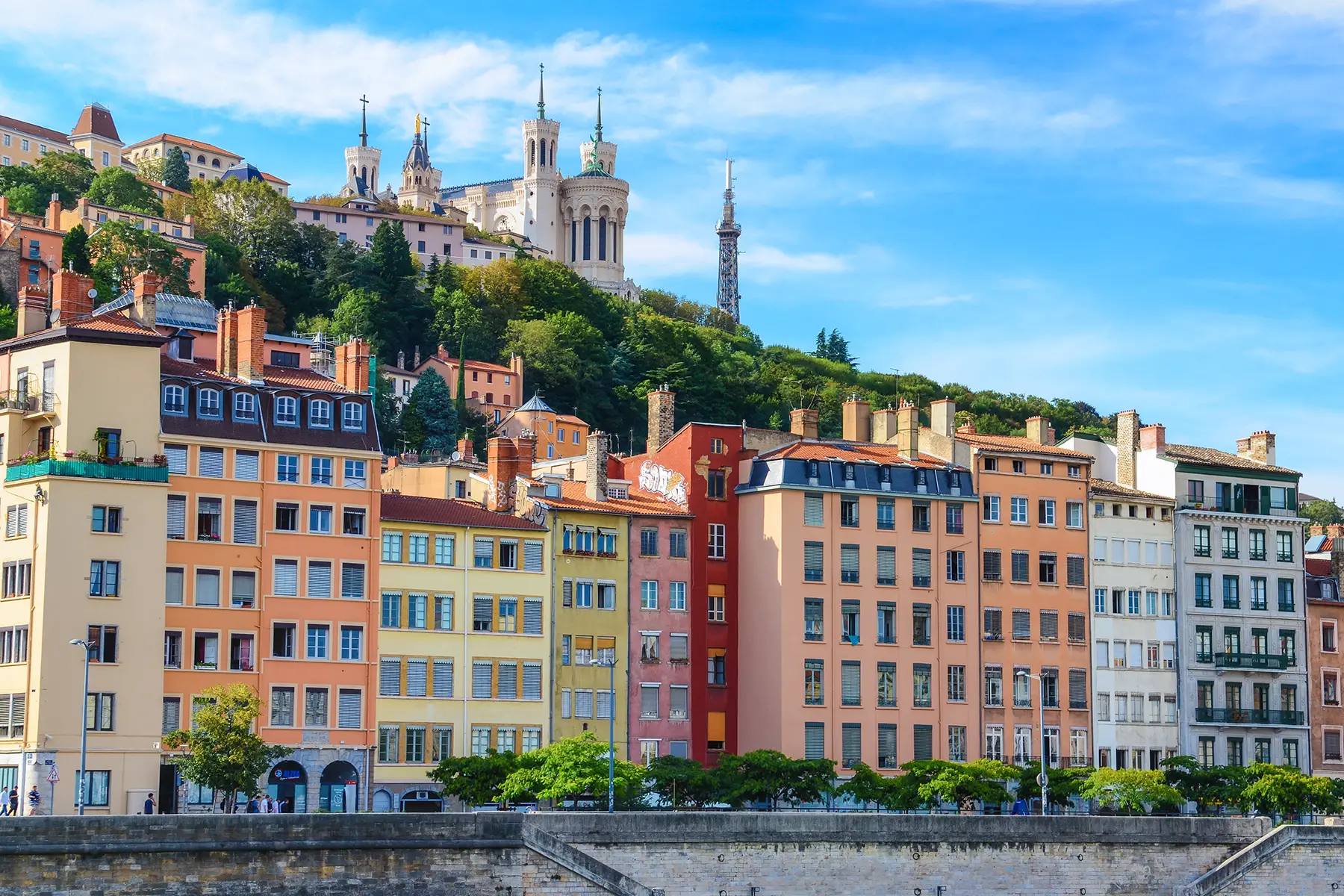Whether you’re voting, following the news, or just need to distract yourself from the surge of populism, knowing who’s in power (and why!) is always a recommended move. Learn more about France’s political system, including recent election results, key political alignments, and the role of the president.
Continue reading for more information on the following:
- Overview of the political system in France
- Which are the main political parties in France?
- President vs PM: who is currently in power in France?
- The French electoral system
- Political representation in France
- The political history of France
- What is the state of France’s economy?
- Grassroots politics and political activism in France
- Useful resources
Ground News
Get every side of the story with Ground News, the biggest source for breaking news around the world. This news aggregator lets you compare reporting on the same stories. Use data-driven media bias ratings to uncover political leanings and get the full picture. Stay informed on stories that matter with Ground News.
Overview of the political system in France
France is one of the birthplaces of modern democracy, with modern political institutions dating back to 1789.
The republic is a parliamentary democracy with a semi‑presidential political system. Its head of state is the French president (président), who appoints the prime minister (Premier ministre – PM) as head of government.
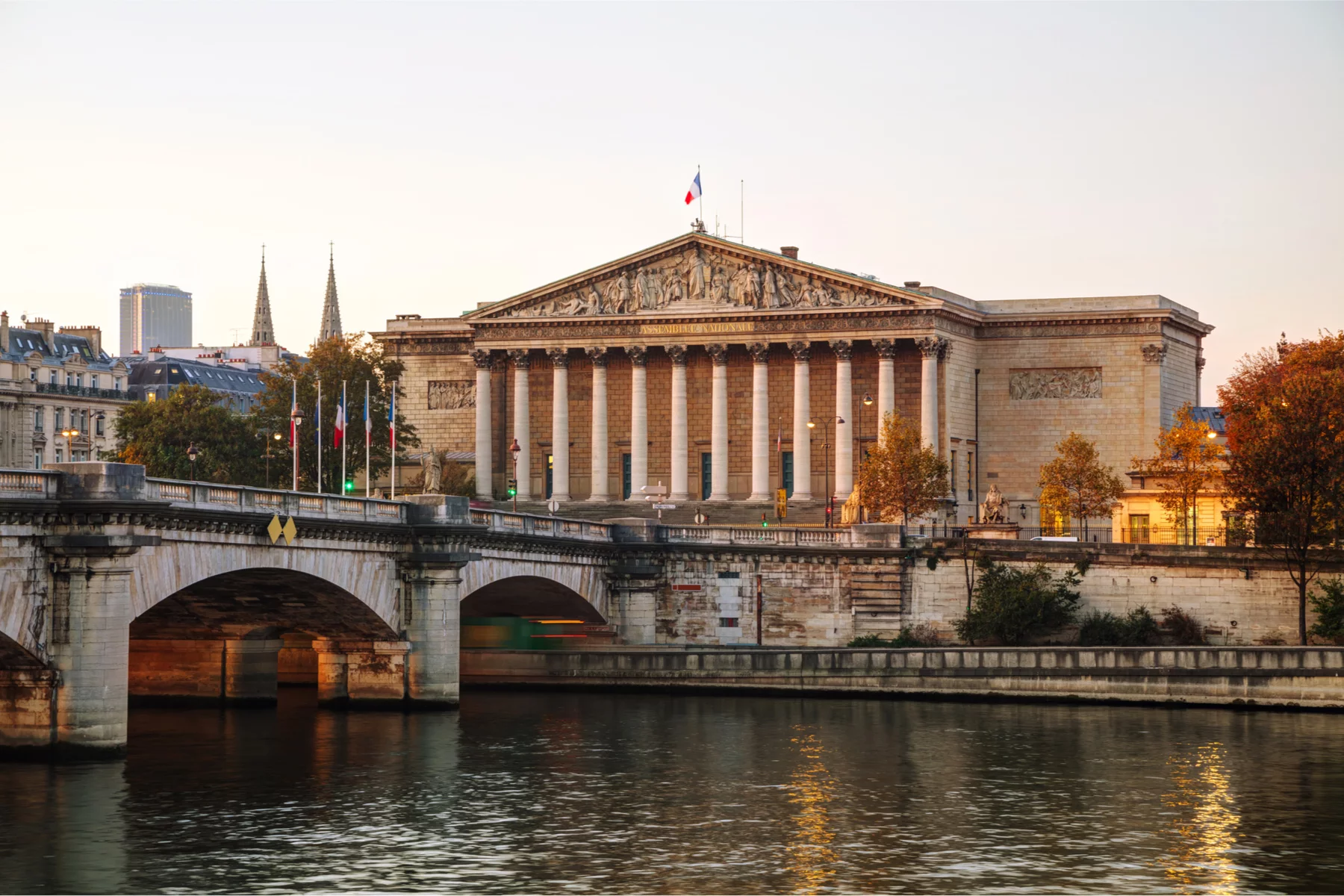
Having invented the three branches of power (i.e., trias politica) in 1748, France’s government is separated into:
- The executive – the president and the central government (Gouvernement), which consists of the PM and French ministers
- The legislature is called the Parliament (Parlement) and consists of two chambers:
- The lower house is called the National Assembly (Assemblée nationale), which has 577 democratically elected seats (députés) with five-year terms
- The upper house or Senate (Sénat), which has 348 senators with six-year terms
- The judiciary comprises the courts and the legal system in France
The national government is France’s main decision-making body and oversees policy development in areas such as healthcare, education, and public transport. Below that are three tiers of government that perform various administrative and legal functions: 18 French regions (régions) including five overseas territories, 96 departments (départements), and around 35,000 municipalities (communes).
According to the 2023 Democracy Index, France ranks 23rd globally and is classed as a full democracy. The country holds elections every five years to choose its president and political leaders. All French citizens over the age of 18 have the right to vote and stand for public office.
While voting is not mandatory, the French score above average in civil society participation. In 2023, an impressive 88% of citizens were active in an organization that chooses and influences policy-makers.
Which are the main political parties in France?
France has a high number of political parties across the spectrum. These often fragment or mutate into a new party, form alliances with each other, or sometimes just dissolve.
Most parties can be quite easily placed along the old left-right economic scale. Interestingly, in French politics, the term libéral tends to mean only economic (free-market) liberalism. As such, it should be treated as the opposite of socialism, rather than as social liberalism (e.g., civil rights).

The June–July 2024 election saw the following political alliances:
Together (Ensemble – ENS)
| Party | French name | Founded in | Party leader | Ideology |
| Democratic Movement | Mouvement démocrate (MoDem) | 2007 | François Bayrou | Center to center-right, social liberalism |
| Horizons | Horizons | 2021 | Édouard Philippe | Center-right, liberal conservatism |
| Radical Party | Parti radical (PRV) | 1901 | Laurent Hénart | Center, libralism |
| Renaissance, formerly Republic on the Move! | Renaissance (RE), formerly La République En Marche! | 2016 | Stéphane Séjourné | Center, liberalism |
| Union of Democrats and Independents | Union des démocrates et indépendants (UDI) | 2012 | Hervé Marseille | Center to center-right, liberalism |
The alliance also includes three smaller center parties.
New Popular Front (Nouveau Front Populaire – NFP)
| Party | French name | Founded in | Party leader | Ideology |
| France Unbowed | La France Insoumise (LFI) | 2016 | Jean-Luc Mélenchon Manuel Bompard | Left to far-left, populism |
| French Communist Party | Parti Communiste Français (PCF) | 1920 | Fabien Roussel | Left to far-left, communism light |
| Socialist Party | Parti Socialiste (PS) | 1969 | Olivier Faure | Center-left to left |
| The Ecologists, formerly Europe Ecology – The Greens | Les Écologistes (LE), formerly Europe Écologie Les Verts | 2010 | Marine Tondelier | Center-left to far-left, green politics |
The alliance also includes 50 smaller left-wing parties.
National Rally Alliance (Rassemblement National – RN)
| Party | French name | Founded in | Party leader | Ideology |
| National Rally, formerly National Front | Rassemblement National (RN), formerly Front National | 1972 | Jordan Bardella | Far-right populism, with anti-immigration and Islamophobic views |
| The Republicans | Les Républicains (LR) | 2015 | Eric Ciotti | Center-right to right, liberal conservatism |
Following the 2024 European Parliament election, LR party leader Éric Ciotti declared his party would align with the RN during the 2024 election. However, this provoked a major schism within the party, and Ciotti was ousted on 12 June. He took the case to court and was reinstated two days later.
As a result, some LR members split off and started The Republican Right (La Droite républicaine), under the leadership of Laurent Wauquiez. It is unclear what this means for the RN alliance.
President vs PM: who is currently in power in France?
France has both a president and a prime minister.
The French president: Emmanuel Macron
The president is the most powerful person in the French government, and generally the most well-known figurehead. The public elects (and may re-elect) the president for a five-year term. Presidents cannot serve more than two consecutive terms.
France’s current president is Emmanuel Macron (RE). He came to power in 2017 and was re-elected in 2022, beating Marine Le Pen (NR) with 58.5% of the vote. His term runs until 2027.

How are prime ministers elected?
They are not! The president is responsible for appointing a prime minister as the head of government. Of course, a lot of pressure to pick a PM from the winning party of the legislative elections. Presidents do not have the power to dismiss PMs, but they can ask for their resignation.
French prime ministers don’t often last the full parliamentary term, and many have resigned early for various reasons. 2024 was a prime example of how short-lived a prime minister’s tenure can be.
Amid a major government crisis in January 2024, former Prime Minister Élisabeth Borne resigned at Macron’s request. She was the second woman to hold the position after Édith Cresson.
Gabriel Attal (RE), who was the first openly gay person to serve as a G7 head of government, succeeded Borne. At age 37, he was also the youngest prime minister in the history of France. However, following the 2024 European elections where France loudly and clearly declared their desire for a right-wing turn of tides, Macron asked for some snap legislative elections.
Attal resigned from office following the results of these elections and stayed on until his successor was appointed by Macron in September 2024. That was barely seven months after his appointment.
The 2024 General Election results in France
The most recent general elections in France took place in June–July 2024.
The snap election was called after President Macron dissolved the National Assembly following a significant loss in the 2024 European Parliament election. Mirroring trends around the world, the far-right populist party NR won the European election by a landslide. By calling for a national vote, Macron hoped that French voters would come to their senses and show that the far right could not win at a national level.

Many analysts feared he would lose this high-risk political gamble. However, French voters showed the magnitude of their political discontent by not voting en masse for the RN as expected but rather marginally favoring a wonky patchwork left-wing coalition, NPF.
The 2024 election results
With only 26.3% of the votes, the NPF didn’t receive an absolute majority, which would have made for the easy formation of a new government. In fact, votes were almost equally split between the left, the center, and the far-right:
The voting results included:
- NPF – 188 seats
- ENS – 161 seats, suffering a tremendous loss of 76 seats (compared to the 2022 election)
- RN – 142 seats, winning an incredible 53 more seats than last time
- LR – 48 seats, losing 13 seats compared to last time
- Other – 38 seats, which is 21 less seats than in 2022
This puts France in an “uncertain, and unprecedented situation”. The country often finds itself in a situation that the French call ‘cohabitation‘, where the president and the parliament hail from different parties. This usually leads to political and decisional deadlocks because of the difficulties in finding compromises.
This time, however, the election yielded no winning party with an outright majority, which requires 289 seats. With the necessity to get the three winning parties to come to an agreement, finding the right person for the job had therefore become an impossible feat.
The current prime minister of France: François Bayrou
Naturally, the new prime minister should have hailed from the NPF, which had garnered the most votes. However, the RN steadfastly refused to work with the leftist party, which was probably quite content not to be picked anyway. The political situation in France is in such a gridlock that finding yourself in power would most likely kill all your chances at a real governing future.
In September 2024, Macron went for the least contentious option and appointed Michel Barnier Prime Minister, a well-respected figure of the conservative center from the LR party. Exactly three months later, the new Prime Minister lost a vote of no-confidence, triggering the collapse of the government, deepening the country’s political turmoil, and causing him to resign.

France has the unfortunate rule that no new elections can be called for a year after the previous legislative polls. In December 2024, Macron appointed François Bayrou as the new Prime Minister. The veteran centrist and ally of President Macron is the fourth one this year.
Bayrou inherits one of the most difficult political situations in French history. A budget with a huge deficit, for one, but also a heavily divided people, and a flailing, heavily-opposed executive government that may not survive its quinquennat. Taking office, Bayrou said he recognized these serious problems and said, “[it] was so mountainous it was like politically climbing the Himalayas.”
The French electoral system
French citizens vote in four types of elections:
- Presidential – every five years
- Parliamentary – every five years
- European Parliament – every five years
- Local (e.g., regional, departmental, and municipal) – every six years
France is one of only two European democracies – the other being the UK – that doesn’t use proportional representation in its national elections. Instead, the political landscape is decided using a two-round system.
In the first round, the top two candidates are elected using simple plurality. In the second round, the winner is chosen by the majority vote:
- During presidential elections, all parties can put forward a candidate if they get enough support. Likewise, independents can also stand for office. However, some parties, particularly the smaller ones, often choose to support candidates from other parties to ensure their ideology wins.
- In parliamentary elections, 577 députés are elected in single-seat constituencies. Each citizen gets a single vote. Only candidates with the support of at least 12.5% of eligible (rather than actual) voters progress to round two. Again, in round two, the winner is the candidate with the majority vote.
- Local elections in France are decided differently; these use a mixture of two-round and proportional representation voting.
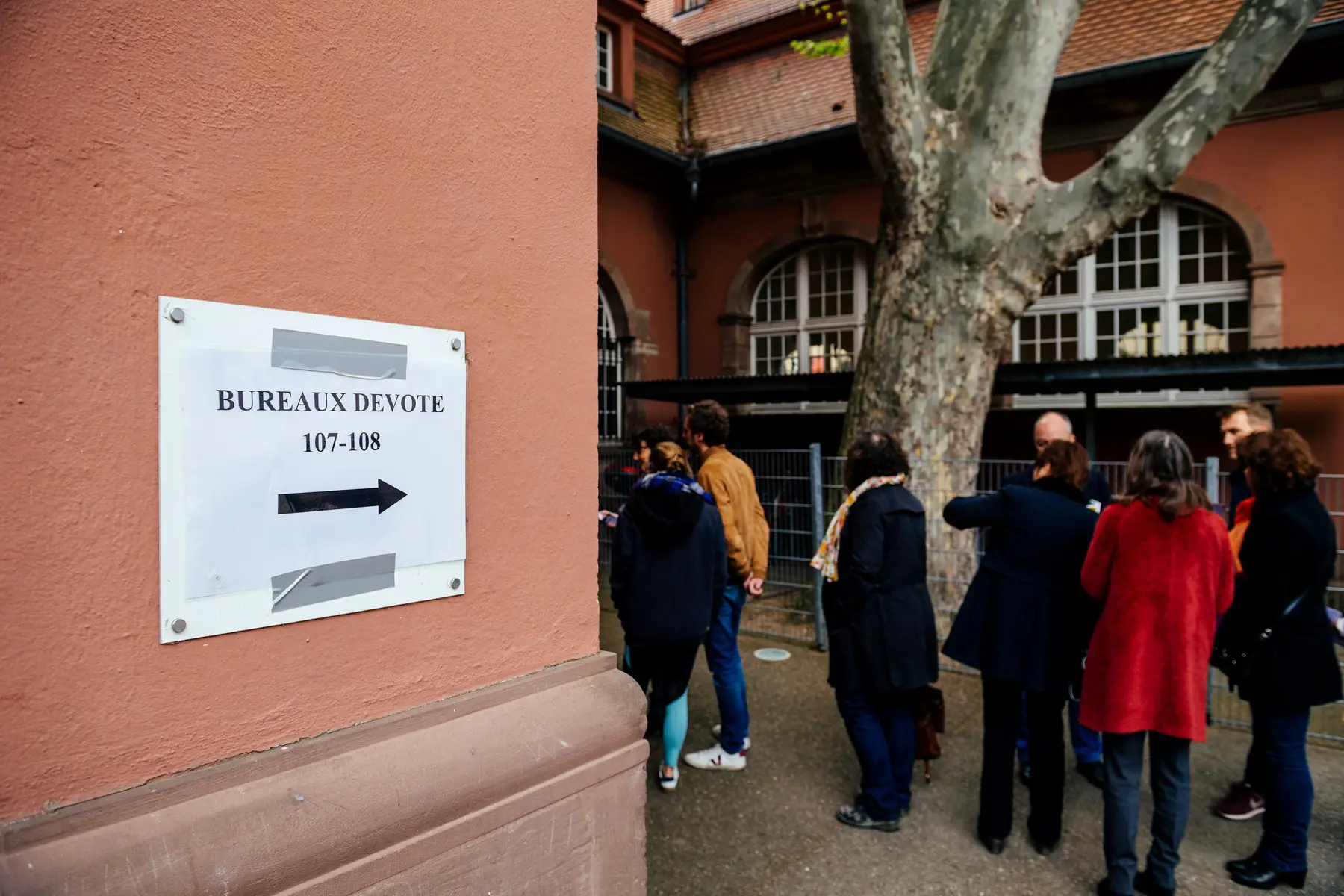
The French public does not directly vote for the 348 members of the Senate. Instead, the lower house is selected by an electoral college of representatives from the 96 departments in metropolitan and overseas France.
Who can vote in France?
All French citizens over the age of 18 can vote in French elections. That is, unless their civic rights have been taken away after a criminal conviction.
EU citizens living in France may vote in local and European Parliament elections. Other foreign residents do not have voting rights.
How to vote in France
Voter registration is automatic for French citizens over 18. However, EU nationals must register themselves. You can do this online or through your local town hall (mairie). You can check if you are registered to vote on the government’s public services website.
French elections are always held on a Sunday. There are many polling stations (bureau de vote) across the country, and you’ll see signs for your local voting place.
At the polling station, you’ll need to show either your voter registration card or valid ID. You then receive a ballot paper (bulletin) and are directed to a curtained booth. If you’re unable to go to the voting station, you can also appoint a proxy. This must be someone from your municipality and you must arrange this in advance of Election Day.
Political representation in France
Anyone eligible to vote can stand for public office in France. This means that most French citizens can run for the National Assembly, while EU citizens can participate in local and European elections.

Interestingly, France was one of the first countries in the world to introduce gender quotas to improve female political representation. Consequently, each party needs to put forward a candidate list consisting of 50% women in most elections. This has increased the number of women in power, with a record number of female MPs elected in 2017.
In the previous government (2022–2024), 36% of ministers and 36.2% of French Senators are women. This is above the European average of 31.5% and 31.3% respectively. Ethnic minority MPs made up 5.8% of the National Assembly. This is below the figure for minorities among the overall population, which is around 10%.
The political history of France
France’s political system dates back to the French Revolution and the creation of the National Assembly in 1789. This was the beginning of modern-day democratic politics in the country.
France had a tumultuous 19th century, alternating between a republic and monarchic rule. There was also a brief period in 1871 when a workers’ commune established direct democratic rule in Paris.
The Fifth Republic began under Charles De Gaulle in 1958. That year, France adopted a new constitution that introduced the current semi-presidential system and strengthened the powers of the French president.
Early presidents of the Fifth Republic ruled for seven-year terms; however, this was reduced to five years in 2000. After a 2008 constitutional reform, a maximum of two consecutive terms was imposed.
While France has remained a stable democracy during the Fifth Republic, the French government has also experienced crisis periods. For example, the country saw the collapse of its overseas empire in the immediate post-war years, including a brutal war in Algeria. And in May 1968, a student revolt (Mai 68) almost ended the de Gaulle presidency.

Political power in the French modern era has alternated between center-right and center-left governments and presidents, often involving the participation of the more fringe parties.
France in the European Union
France is one of the founding members of the EU, which was established in 1993. The country also joined the Eurozone in 1999, replacing its currency, the Franc, with the Euro.
However, Euroscepticism is high, and the possibility of a future ‘Frexit’ (France exit) cannot be ruled out. In fact, several parties on both right and left support either leaving or severely reforming the EU. Furthermore, the anti-EU National Rally won the 2024 European elections in France with 31.4% of the vote.
What is the state of France’s economy?
France is one of the major global economic powers with a highly diversified market-oriented economy. Its gross domestic product (GDP) is €2.82 billion, which works out to €40,800 per capita (2023).
The country’s main industrial activities are services, such as wholesale and retail trade, transport, financial services, education, healthcare, and real estate. The tourism industry is also strong, with France remaining the most visited country in the world (United Nations World Tourism Organization, 2023).
The European Commission projects France’s growth will remain subdued in 2024 (0.7% annual growth) but gain momentum in 2025 (1.3%).
You can read more about inflation and average prices in our article on the cost of living in France.
Grassroots politics and political activism in France
France has a long-standing culture of grassroots activism and political protest, which has probably been a factor in the proliferation of French political parties over the years. Both the left and the right have been fairly effective at mobilizing citizens. There have been numerous protests against the previous government’s austerity measures, including over 100,000 taking to the streets in 2015.
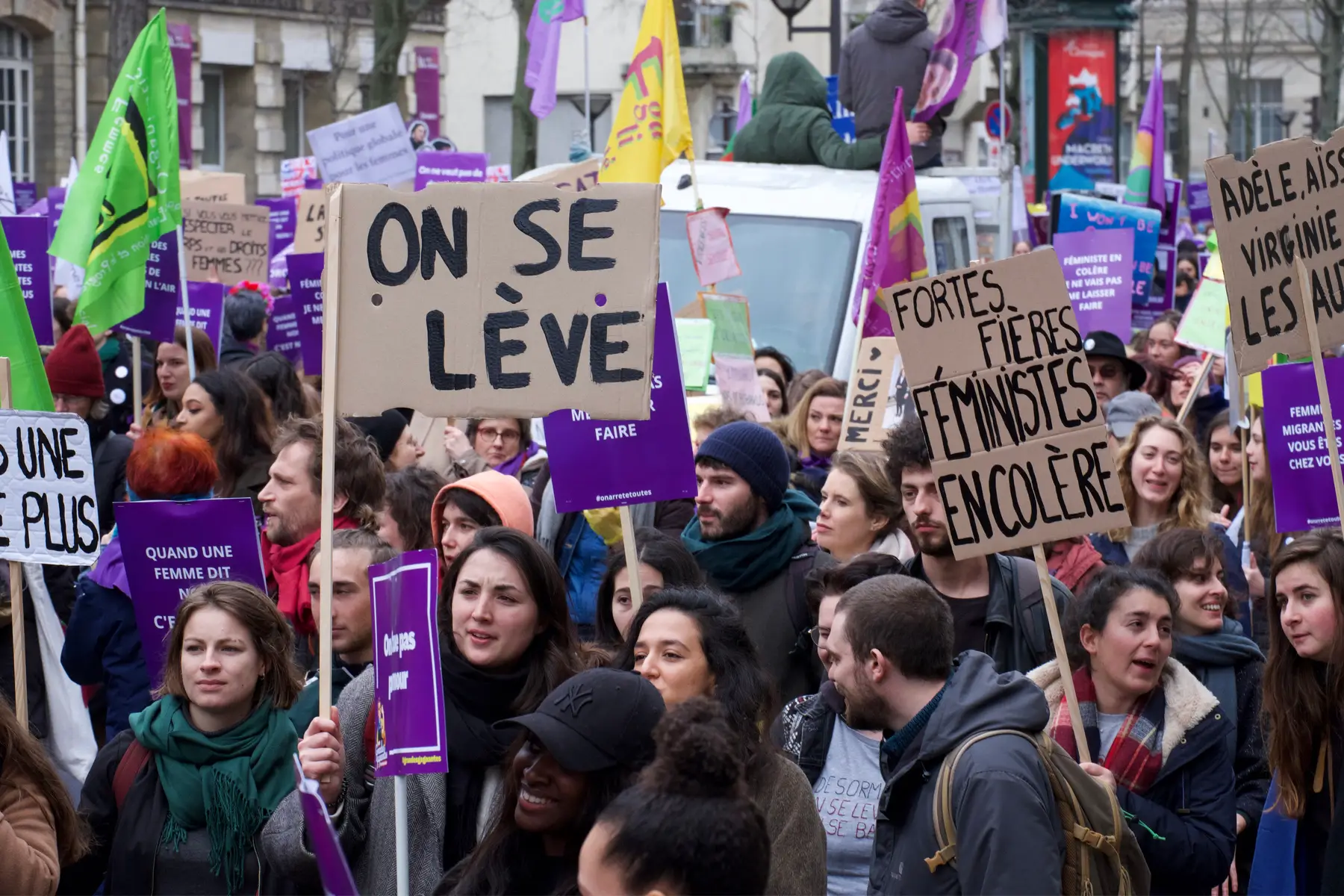
Since 2018, the so-called “yellow vests” (gilets jaunes) have also mobilized and protested regularly about a range of issues, including fuel tax and pension reforms. The movement is associated with the populist right in France, although it attracts citizens from across the political spectrum.
Climate change is also inspiring citizen involvement. The global movement Extinction Rebellion is active in 14 areas of France. The country also held a Citizens’ Convention on Climate (Convention Citoyenne pour le Climat) in 2019–20, involving 150 citizens.
Ways to get involved in French politics or government issues include:
- You can start or join a local activist group
- If you are an EU citizen, you can get involved in local politics. This could involve attending municipal or communal meetings or even running for local office.
- If you work in France, you could join a trade union. Although membership is on the decline, workers’ unions have a fair amount of political power and are good at mobilizing le peuple (the people).
Useful resources
- info.gouv.fr – official French government website
- Service-Public – provides information about elections and voting in France
- Élysée – the official website of the French Presidency
- Assemblée Nationale – the website of the National Assembly
